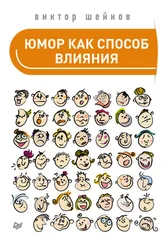354. Forgas J. Epilogue: Everyday Understanding and Social Cognition // Social Cognition / Ed by J. Forgas. – London: Academic Press, 1981, p. 259–272.
355. Freire P. Pedagogy of the Oppressed. – N. Y., 1971.
356. Freud A. The ego and mechanisms of defense. – L., 1948.
357. Freud S. Civilization and its discontents. – L., 1930.
358. Fromm E. The Anatomy of Human Destructiveness. – New York, 1975.
359. Fromm E. The art of loving. – N. Y., 1954.
360. Fromm Erich. «Man Is Not a Thing», Saturday Review, March 16, 1957. Р. 9–11.
361. Geen R. G. Human aggression. – Pacific Grove CA: Brooks / CoIe, 1990.
362. Giddens A. The Constitution of Society. – Polity Press, Cambridge, 1989. P. 198.
363. Glasl. F. The process of conflict escalation and roles of third parties. In G. B. J. Bomers, R. B. Peterson (Eds.), Conflict management and industrial relations (p. 119–140). – Boston: KIuwer-Nijhoff, 1982.
364. Gottman J.M., Levenson R.L. The social psycho-physiology of marriage. In P. Noller and M. A. Fitzpatrick (Eds.), Perspectives on marital interaction (p. 182–200). Clevendon, England: Multilingual Matters, 1988.
365. Guimond S., Dude-Simard L. Relative deprivation theory and the Quebec Nationalist Movement: the cognition – emotion distinction and the personal – group deprivation issue // Journal of Pers. and Soc. Psychology, 1983. Vol. 44.
366. Hall E.T. The hidden dimension. – N. Y., 1966.
367. Hook E . Behavioral Implications of the XYY Genotype // Science, 1973. July.
368. Katz D., Kahn R. The Social Psychology of Organizations, 1967.
369. Kelley, H. H., Schenitzki, D. P . Bargaining. In C. G. McClintock (Ed.), Experimental social psychology (p. 298–337). N. Y.: Holt., 1972.
370. Kelman H C., Hamilton. V. L. Crimes of obedience: toward a social psychology of authority and responsibility. – New Haven, CT: Yale University Press, 1989.
371. Klar Y., Bar-Tat D., Kruglanski A . Conflict as a Cognitive Schema: Toward a Social Cognitive Analysis of Conflict and Conflict Termination. // The Social Psychology of Intergroup Conflict. Theory, Research and Applications / Ed. by W. Stroebe a. o. – Berlin, 1988, p. 73–85.
372. Kriesberg. L. Social conflicts (2nd ed.). Englewood Chits. – N Y: Prentice-Hall, 1982.
373. Laupa M. Children’s reasoning about three authority attributes: Adult status, knowledge and social position // Developmental Psychology – 1991, № 2.
374. Lax D. A., Sebenius J. K. The manager I as negotiator: Bargaining for cooperation and competitive \gain. New York: Free Press, 1986.
375. Levinger G. Development and change. In H. H. Kelley, E. Berscheid, A. Christensen, J. H. Harvey, T. L. Huston, G. Levinger, E. McClintock, L. A. Peplau, D. R. Peterson, (Eds.), Close relationships (p. 315–359). – N. Y.: Freeman, 1983.
376. Lewin K. Resolving Social Conflicts. – N. Y., 1948.
377. Mack R., Snyder R. The Analysis of Social Conflict-toward an overview and synthesis // Journal of Conflict Resolution, 1957. Vol. 1, 2.
378. Mack R. The Analysis of Social Conflict-toward an overview and synthesis / R. Mack, R. Snyder //Journal of Conflict Resolution. 1957. Vol. 1, 2. P. 65.
379. Mastenbroek W.F.G. Conflict Management and Organization Development. – N. Y.; Toronto, 1987. P. 243.
380. Milgram S. The individual in a social world: Essays and experiments (2nd ed.). – N. Y.: McGraw-Hill, 1992.
381. Miller N., Brewer M. B. (Eds.). Groups in contact: The psychology of desegregation. – N. Y.: Academic Press, 1984.
382. Miller N., Davidson-Podgorny G. Theoretical models of intergroup relations and the use of cooperative teams as an intervention for desegregated settings. In C. Hcndrick (Ed.), Group processes and intergroup relations. New-bury Park, CA: Sage, 1987.
383. Moyer K. The Psychobiology of Aggression. – N. Y., 1976.
384. North R. S., Brody R. A., Holstl О. R. Some empirical data; on the conflict spiral. Peace Research Society (International) Papers, 1, l-14,1964.
385. Osgood C. E. An alternative to war or surrender. – Urbana: University of Illinois Press, 1962.
386. Osgood C. E. Perspective in foreign policy (2nd ed.) Palo Alto, CA: Pacific Books, 1966.
387. Oxford Advanced Learners Dictionary of Current English. – Oxford, 2000.
388. Oxford Word power Dictionary. – Oxford, 1993.
389. Parsons T. Social System. – N. Y., 1951.
390. Parsons T. Structure of Social Action. № 9, 1968.
391. Plutchik R., Kellerman H., Conte H. R., Izard C. E. (Eds.) A structural theory of ego and emotions // Emotions in personality and psychopathology. № 7, N. Y., 1979.
392. Porter R.H., Moore J.D. Human kin recognition by olfactory cues. // Physiology & Behavior. 1981. No. 27, p. 112–128.
393. Prasow P. Conflict and Cooperation in Labor – Management Relations. // Management of Conflict. – Los Angeles, 1974.
394. Pruitt D. G., Gahagain J. P. Campus crisis: The search for power. Tedeschi (Ed.), Perspectives on social power (p. 349–392). – Chicago: Aldine, 1974.
395. Pruitt D. G., Micolic J. M, Eberle R., Parker J. C, Peirce R. S. The escalation of conflict: Group vs. individual response to persistent annoyance. Paper presented at the Sixth Annual Conference of the International Association for Conflict Management, Houthalen, Belgium, June 14–17, 1993.
396. Pruitt D. G . P. J Carnival Negotiation in social conflict. Buckingham: Open University Press, 1993.
397. Pruitt D. G . Negotiation behavior. New York: \Academic Press, 1981.
398. Pruitt D. G., Carnevale P. J. The development of integrative agreements in social conflict. In V. J. Derlega, J. Grzelak (Eds.); Living with other people. New York: Academic Press, 1982.
399. Pruitt D. G., Carnevale P. J. Negotiation in social conflict. Buckingham: Open University Press, 1993.
400. Rapoport A. Fights, games, and debates. Ann Arbor: University of Michigan Press, 1960.
401. Richardson L. F. Arms and insecurity. – Chicago: Quadrangle. 1967.
402. Robinson P. W. Manipulating parents; tactics used by children of all ages and ways parents can turn the tables. – Prentice-Hall, 1981.
403. Rohner R. P. Sex differences in Aggression: Phylogenetic and enculturation perspectives // Ethos, 1976, 4, p. 57–72.
404. Rosenhan D. L. On being sane in insane places. Science, 1973, 179, p. 250–258.
405. Rosenthal R., Fode K. The effect of experimental bias on the performance of the albino rat. Behavioral Science, 1963, 8, p. 183–189.
406. Rosenthal R., Jacobson L. F. Pygmalion in We classroom. – N. Y.: Holt, Rinehart and Winston, 1968.
407. Rotter J. B. Generalized expectancies for internal versus external control of reinforcement. Psychological Monographs, 1966.
408. Rozenrzweig S. An outline Frustration Theory // Hunt I Me V. (Hrsg) Personality and the Behavior Disorder. № 9, 1972.
409. Rubin, J. Z., Rubin, C. When families fight: How to handle conflict with those you love. New York, 1989.
410. Schumpeter J. The sociology of imperialism. – N. Y.: Meridian Books, 1955.
411. Schwartz, S. H., Struch, N. Values, Stereotypes, and intergroup antagonism. In D. Bar-Tal, C. R. Grauman, A. W. Kruglanski, & W. Stroebe (Eds.), Stereotypes and prejudice: Changing conceptions (p. 151–167). – N. Y.: Springer-Verlag, 1989.
Читать дальше
Конец ознакомительного отрывка
Купить книгу












![Виктор Шейнов - Развиваем мышление, сообразительность, интеллект [Книга-тренажер]](/books/404204/viktor-shejnov-razvivaem-myshlenie-soobrazitelnost-intellekt-kniga-trenazher-thumb.webp)